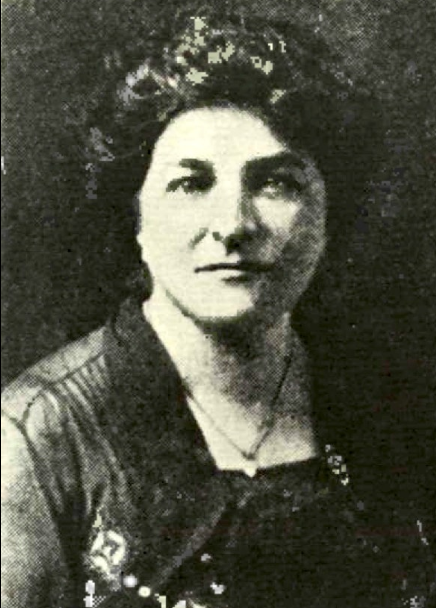The first female Marine: Opha May Johnson couldn't vote, but rushed to serve
Opha May Johnson was born in 1879 in Kokomo, Indiana.

The first female Marine?
Not what you may think. Yes, women served as parachute riggers and welders, and eventually became drill sergeants and pilots. But the first woman to join the Marine Corps was the 39-year-old wife of an orchestra conductor.
Opha May Johnson joined up Aug. 13, 1918 -- before she was even allowed to vote.
Almost a century later, the Marines announced Thursday a woman has passed the grueling Infantry Officer Course, long the domain of the toughest male Marines, for the first time.
This still-unidentified woman was tested for 86 days on a course that washes out 25 percent of the men who try it. She hiked for miles in the Mojave Desert and in the mountains, swam laps in all her battle rattle, carried a load of up to 152 pounds for more than nine miles at a three-mile-per-hour pace, and came across a pile of springs, firing bolts, stocks and barrels and -- on the spot -- assembled them into foreign and American infantry weapons (under an undisclosed time limit). Among other horrors.
Her performance was so jaw-dropping, the Marines announced her halfway point in August.

It was different for the first female Marine 100 years ago -- she did not have to hike in the desert. She did take a man's job.
It was close to the end of World War I when the Marine Corps decided to fill some of the gaps left behind by all the men fighting overseas. In 1918, Johnson was the first of 300 women who showed up to take one of those jobs. They made headlines in newspapers all across the country.
Johnson, born Opha May Jacob in Kokomo, Indiana, was a rapid-fire typist.
Her name is often misspelled, Kara Newcomer, a historian with the Marine Corps History Division, told the Quantico Sentry. Her middle name usually appears in books and on photos as "Mae," though it's spelled like the month, May, Newcomer said.
"We also believe she probably went by her first name alone, based on how she signed her name," Newcomer said.
Johnson was a graduate of the Shorthand & Typewriting department of Wood's Commercial College and was working in the Interstate Commerce Commission when the Marines issued a call for help. Johnson was first in line.
She was 39 and had left Indiana to follow her husband, Victor Johnson, to Washington, where he was the musical director of the Lafayette Square Opera House.
Her new job had her clerking at the Marine Corps Headquarters in suburban Arlington, Virginia. Even though they were clerks, the women had to train and drill like other Marines. Drill sergeants made their displeasure clear, calling the women "Marinettes," according to Linda L. Hewitt's book, "Women Marines in World War I."
The female Marines were not amused by the nickname.
"Isn't it funny the minute a girl becomes a regular fellow somebody always tries to queer it by calling her something else? [. . .] Well, anybody that calls me anything but 'Marine' is going to hear from me," one of the female Marines wrote, in a letter in Hewitt's book.
The women were all in. Their time in the Marines was brief. After the end of World War I, all of the military branches began disenrolling the women who signed up, a pattern repeated in World War II. Johnson was let go in 1919.
During all her years in the nation's capital, she remained active in the first American Legion post dedicated to women. For decades, she met with new veterans, supporting women as their roles grew more prominent in the military.
She lived long enough to see Capt. Anne Lentz become the first female commissioned officer, to see women raising the colors at the Marine Barracks, to see Staff Sgt. Barbara Olive Barnwell become the first female Marine to be awarded the Navy and Marine Corps medal for heroism for saving a fellow Marine from drowning in the Atlantic Ocean in 1952.
Johnson died Aug. 11, 1955, and was buried in Rock Creek Cemetery on Aug. 13 -- 37 years to the day when she made Marine Corps history by signing on that dotted line.
Washington Post
Join our commenting forum
Join thought-provoking conversations, follow other Independent readers and see their replies
Comments
Bookmark popover
Removed from bookmarks